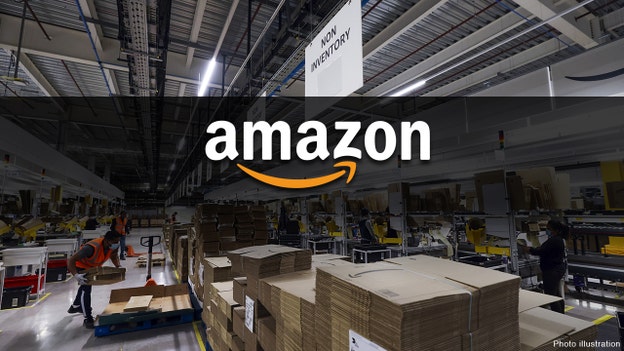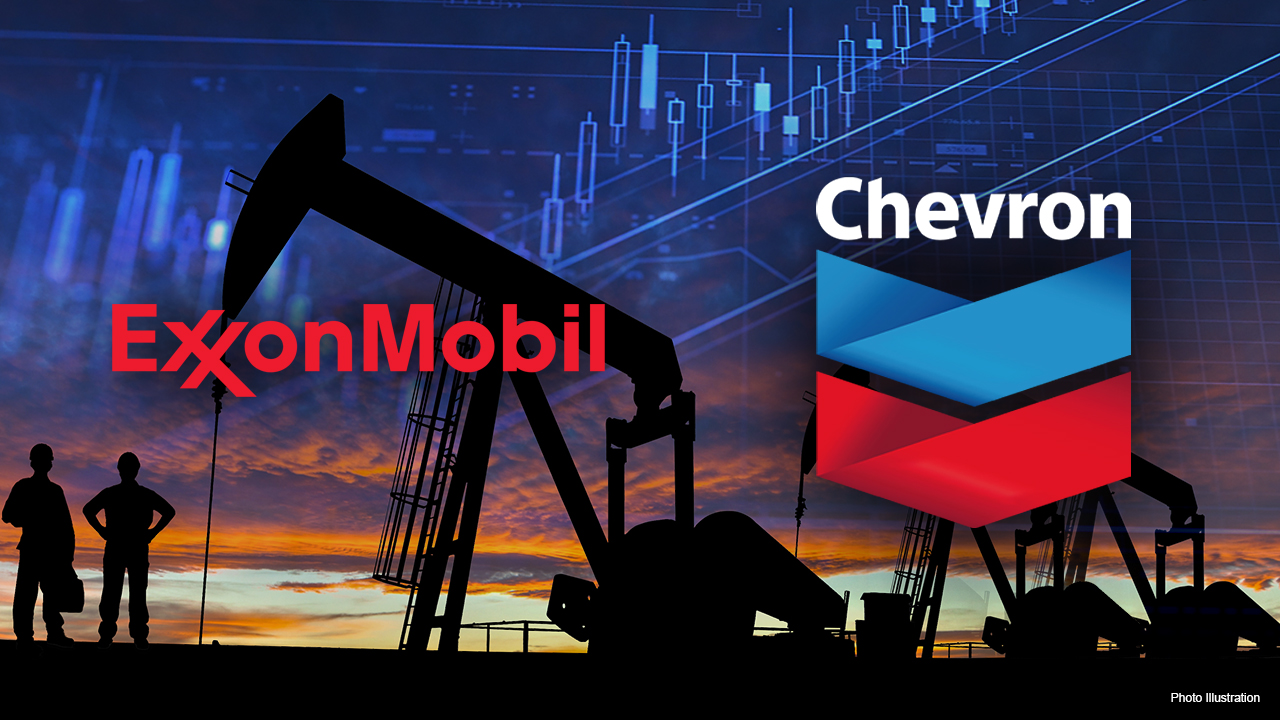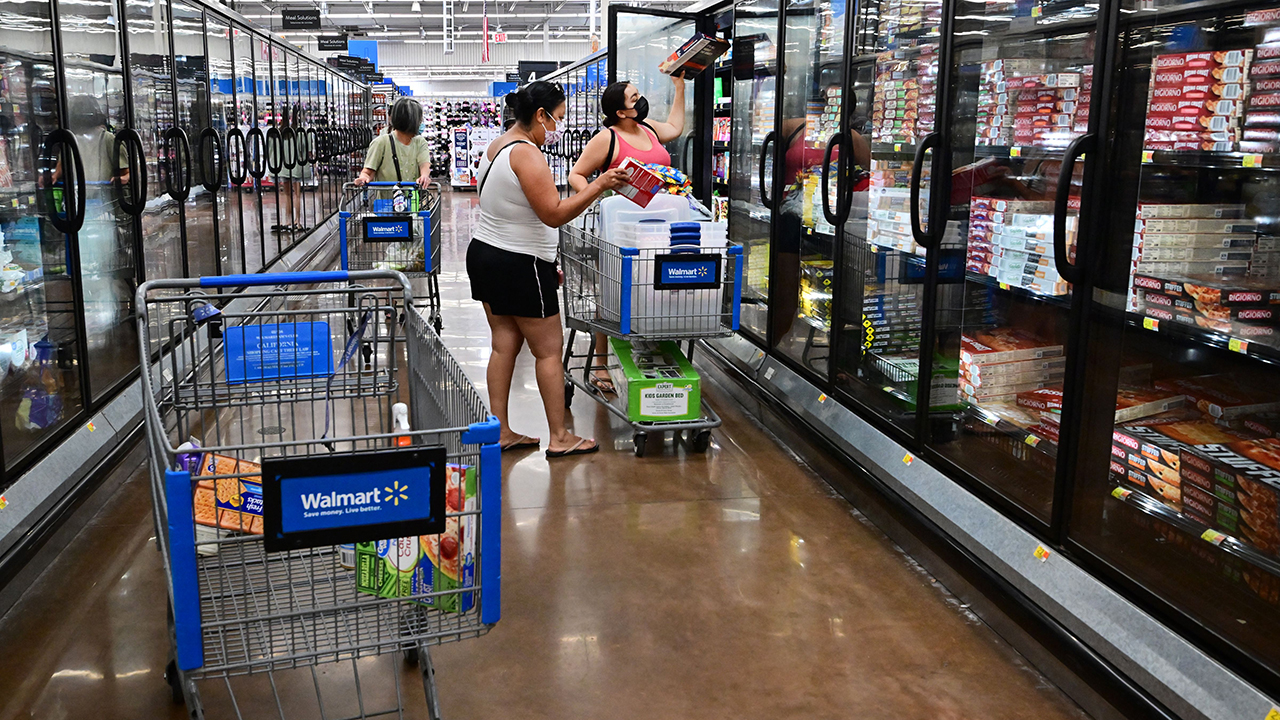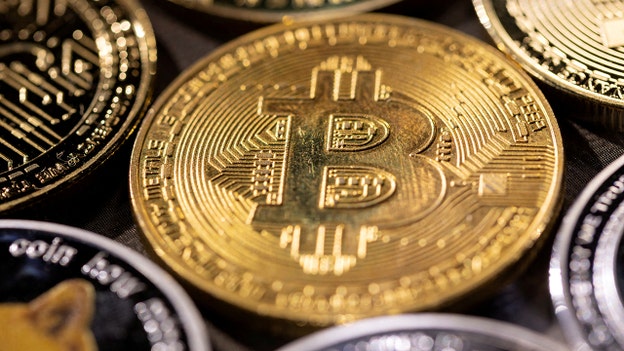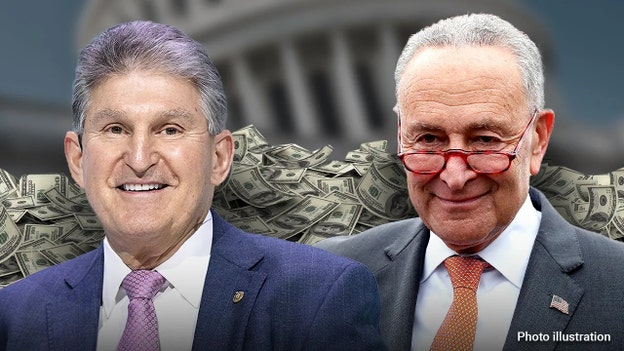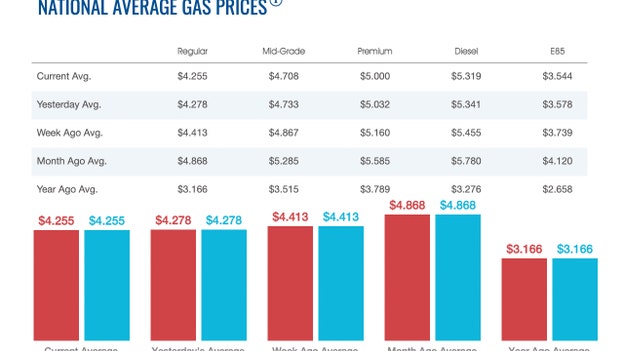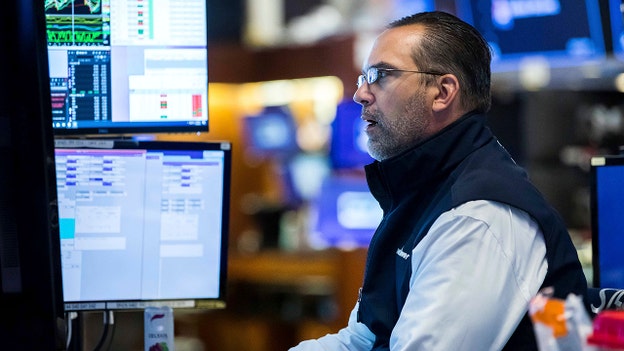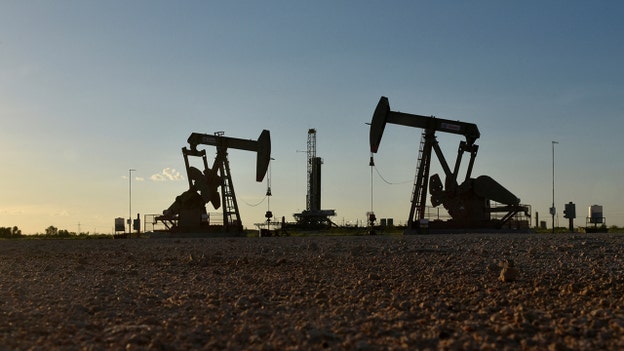STOCK MARKET NEWS: S&P, Dow, Nasdaq wrap winning month even with inflation, recession drags
U.S. stocks are rising after solid earnings from tech giants Amazon and Apple and despite another red hot inflation report. FOX Business is providing real-time updates on the markets, commodities and all the most active stocks on the move.
Coverage for this event has ended.
The estimated jackpot for tonight's Mega Millions has now grown to $1.28 billion, with the cash value now worth $747.2 million.
Tonight's drawing remains the second-largest prize in the 20-year history of Mega Millions and the third largest U.S. lottery prize in history.
MEGA MILLIONS JACKPOT SURGES TO $1.28B, BUT STILL NOT THE BIGGEST IN US HISTORY
Wedbush Securities equity research managing director reveals which technology goliaths were able to navigate the economic dark storm on 'The Claman Countdown.'
| Symbol | Price | Change | %Change |
|---|---|---|---|
| I:COMP | $12,390.69 | +228.09 | +1.88% |
| SP500 | $4,130.29 | +57.86 | +1.42% |
U.S. stocks ended on a high note Friday ending the month of July with solid gains as investors reacted to strong quarterly earnings across technology. For the month, the Nasdaq Composite added 12.3% and the S&P 500 9.1%.
While the Dow Jones Industrial Average added 6.7% and is within striking distance of exiting its bear market hit back in March.
Fundstrat Global Advisors managing director Mark Newton provides insight on high-performing stocks on 'Making Money with Charles Payne.'
Wall Street cheered Amazon's $121 billion in revenue putting the online retailer on pace for the argest percent increase since February 2022, when it rose 13.54%, as tracked by Dow Jones Market Data Group.
Billionaire investor Ray Dalio gives his takes on the latest world news and provides expert analysis on the state of the economy on ‘Cavuto: Coast to Coast.’
The Mega Millions jackpot, set for Friday PM, is one of the highest in history. What if you won all or even a chunk of the $1 billion purse?
Intel, however fell sharply after cutting its revenue guidance and now expects to earn as much as $68 billion. CEO Pat Gelsinger didn't mince words in expressing his frustration with the quarter.
“This quarter’s results were below the standards we have set for the company and our shareholders. We must and will do better. The sudden and rapid decline in economic activity was the largest driver, but the shortfall also reflects our own execution issues,” said Gelsinger.
Shares currently around $35.92, down $3.80 or 9.56%· Would be lowest close since September 2017, when it closed at $35.77.
On pace for largest percent decrease since October 2021, when it fell 11.68%, as tracked by Dow Jones Market Data Group.
| Symbol | Price | Change | %Change |
|---|---|---|---|
| XOM | $92.64 | +1.07 | +1.17% |
| SHEL | $53.11 | +1.62 | +3.15% |
| CVX | $163.66 | +13.20 | +8.78% |
A rising tide lifts all boats as the major oil companies reported a combined $41 billion in second quarter profits.
Exxon: $17.8B
Shell: $11.5B
Chevron: $11.6B
In Chevron's case, the company detailed the rise in crude and nat gas prices vs. the year ago period.
"The company’s average sales price per barrel of crude oil and natural gas liquids was $89 in second quarter 2022, up from $54 a year earlier. The average sales price of natural gas was $6.22 per thousand cubic feet in second quarter 2022, up from $2.16 in last year’s second quarter" the company detailed.
U.S. stocks rose across the board helped by large-cap technology names including Apple and Amazon which both reported solid quarterly results. ExxonMobil, Chevron also rallied as profits saw a big boost with rising oil prices. In commodities, oil neared $100 per barrel.
| Symbol | Price | Change | %Change |
|---|---|---|---|
| AMZN | $122.28 | +1.31 | +1.08% |
| AAPL | $157.35 | +0.56 | +0.36% |
| XOM | $92.64 | +1.07 | +1.17% |
| CVX | $150.39 | +1.13 | +0.76% |
Federal Reserve Chairman Jerome Powell pays close attention to what has been dubbed the Fed's "preferred" data point to evaluate inflation.
Cryptocurrency prices were mixed early Friday as Bitcoin and Dogecoin were higher, but Ethereum was lower.
At approximately 4:30 a.m. ET, Bitcoin was trading at nearly $23,950 (+0.41%), or higher by more than $98.
For the week, Bitcoin was trading lower by nearly 3%. For the month, the cryptocurrency was higher, gaining more than 17.85%.
Ethereum was trading at approximately $1,719 (-0.29%), or lower by about $6.
For the week, Ethereum was trading higher by about 9.5%. For the month, it was trading higher by more than 51.5%.
Dogecoin was trading at 0.070007 (+1.35%), or higher by approximately $0.000931.
For the week, Dogecoin was lower by nearly 1%. For the month, the crypto was higher by more than 5%.
Some West Virginians worry that Sen. Joe Manchin's $443 reconciliation bill will be too costly, though others support the effort to fight climate change.
"He's in a difficult position being one of the more conservative Democrat senators," Randy, of Huntington, told Fox News. "Obviously, the needs and desires of West Virginians are going to differ from those of the folks on the coasts."
After more than a year of negotiations, Senate Majority Leader Chuck Schumer and Manchin, of West Virginia, announced an agreement Wednesday on a stripped-down reconciliation package.
The legislation would spend $369 billion on green initiatives such as reducing carbon pollution and includes a 15% corporate minimum tax for businesses worth more than $1 billion, according to the bill summary.
"That's way too much money to be spending now with the inflation and everything and all the problems that West Virginians have," Greg, a 35-year resident of West Virginia, said of Manchin's proposal. "It's definitely nothing I would support."
But some residents favored the Inflation Reduction Act. "I think it's a good idea right now," Marc, of Charles Town, told Fox News. "There are some things in the bill, like climate attention, that I want to see addressed and that bill does that."
The average price of a gallon of gasoline slipped Friday morning to $4.255, according to AAA.
Gas prices nationwide were $4.278 on Thursday and $4.302 on Wednesday.
Prices have been on the decline since hitting a high of $5.016 on June 14, nearly eight weeks ago.
Last week, the average price of a gallon of gasoline was $4.413. One month ago, that same gallon of gasoline was $4.86.8. One year ago, a gallon of gasoline was $3.166, according to AAA.
Diesel prices dropped early Friday as well, with the national average for a gallon of diesel at $5.319. A gallon of diesel cost $5.341 on Thursday and $5.365 on Wednesday.
A week ago, a gallon of diesel sold for $5.455. A month ago, that same gallon of diesel sold for $5.78. One year ago, a gallon of diesel cost $3.276, AAA reported.
| Symbol | Price | Change | %Change |
|---|---|---|---|
| I:DJI | $32,529.63 | +332.04 | +1.03% |
| SP500 | $4,072.43 | +48.82 | +1.21% |
| I:COMP | $12,162.59 | +130.17 | +1.08% |
U.S. stocks edged higher Friday morning continuing gains from Thursday despite fresh data showing the nation’s economy contracted for a second-straight quarter.
The S&P 500 added 48.82 points, or 1.2%, to 4072.43, building on its strong gains from the prior session.
The broad market index closed sharply higher Wednesday as well after the Federal Reserve raised interest rates and Fed Chairman Jerome Powell hinted the pace of rate rises would eventually slow.
The Dow Jones Industrial Average added 332.04 points, or 1%, to 32529.63. The technology-heavy Nasdaq Composite Index gained 130.17 points, or 1.1%, to 12162.59.
The U.S. economy shrank at a 0.9% annual rate last quarter, marking a second straight quarterly decline in gross domestic product, the Commerce Department said Thursday.
The data intensified debate among analysts and investors about whether the economy is in a recession.
Stocks have started the third quarter in better form after the declines suffered in the first half of the year. Corporate earnings haven't been as bad as investors had feared, suggesting that soaring inflation and signs of flagging economic growth aren't weighing too heavily on companies' balance sheets. A
ll three major indexes have risen at least 8% from their 2022 lows in mid-June and are headed toward strong monthly gains. The Federal Reserve has signaled it is serious about bringing inflation down. On Wednesday it raised its federal-funds rate by 0.75 percentage point to a range between 2.25% and 2.5%.
Some traders have ramped up bets on a slower pace of interest rate increases in coming months after the meeting, helping propel the stock-market rally.
In bond markets, the yield on the benchmark 10-Year U.S. Treasury note fell for the third consecutive session to 2.680% from 2.731% on Wednesday. The yield on the 2-year note dropped to 2.874% from 2.968%.
Meanwhile, Asian shares were mixed Friday, as Chinese shares sank after leaders acknowledged the official 5.5% growth target for this year won't be met.
Hong Kong's Hang Seng index dropped 2.4% to 20,123.55 and the Shanghai Composite index declined 1% to 3,250.64 after China’s leaders acknowledged the struggling economy won’t hit its official 5.5% growth target this year.
The announcement after a planning meeting of the ruling Communist Party said Thursday Beijing will try to prop up sagging consumer demand but will stick to strict anti-COVID-19 tactics that have disrupted manufacturing and trade.
It underscores the high cost Xi's government is willing to incur to stop the virus in a politically sensitive year when he is widely expected to try to extend his term in power.
Japan's benchmark Nikkei 225 lost 0.2% to 27,801.64, while Australia's S&P/ASX 200 gained 1.0% to 6,945.20. South Korea's Kospi added 0.7% to 2,451.50.
Japanese government data showed factory output in June jumped 8.9% from the previous month, marking the first rise in three months. The recent easing of pandemic lockdowns in China has helped boost Japanese production.
A surge in COVID-19 infections to record levels in many parts of Japan has raised concern. But Robert Carnell, regional head of research Asia-Pacific at ING believes that Japan's second quarter GDP, or gross domestic product, will rebound marginally from the first quarter’s contraction.
| Symbol | Price | Change | %Change |
|---|---|---|---|
| USO | $77.13 | -0.74 | -0.95% |
| CVX | $150.39 | +1.13 | +0.76% |
| XOM | $92.64 | +1.07 | +1.17% |
Oil prices were broadly steady on Friday, lifted by supply concerns as attention turns to the next meeting between OPEC and its allies, though fears of recession capped gains.
U.S. West Texas Intermediate (WTI) crude futures for September delivery rose 67 cents, or 0.7%, to $97.09 a barrel by 0640 GMT, reversing losses from the previous session and on track for a nearly 3% rise for the week.
Brent crude futures for September settlement, due to expire on Friday, dipped 12 cents, or 0.1%, at $107.02 a barrel.
The more active October contract climbed 48 cents, or 0.5%, to $102.31. A key driver will be the next meeting of the Organization of the Petroleum Exporting Countries (OPEC) and allies led by Russia, together called OPEC+, on Aug. 3.
Producers have now unwound the record 9.7 million barrels per day (bpd) supply cut they agreed in April 2020, when the COVID-19 pandemic slammed demand.
"Oil prices have little chance of (posting) deep losses on the back of a weak U.S. dollar and the ongoing supply crunch," said CMC Markets analyst Tina Teng.
OPEC+ sources said the group will consider keeping oil output unchanged for September, but two OPEC+ sources also told Reuters a modest increase would be discussed.
A decision not to raise output would disappoint the United States after U.S. President Joe Biden visited Saudi Arabia this month hoping to strike a deal on oil production.
A senior U.S. administration official said on Thursday the government was optimistic about the OPEC+ meeting and said extra supply would help stabilize the market.
Analysts, however, said it would be difficult for OPEC+ to boost supply much given that many producers are struggling to meet their production quotas due to a lack of investment in oil fields.
"OPEC production is constrained, though supplies are stabilizing in Libya and Ecuador. Under-investment in many member countries will keep production constrained," ANZ Research analysts said.
Live Coverage begins here

